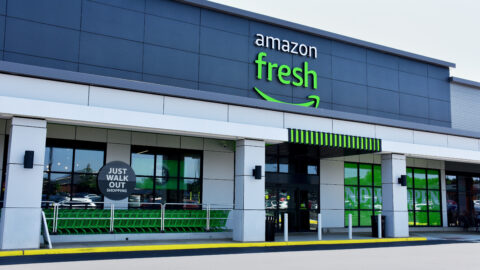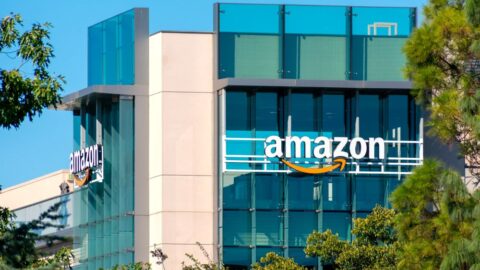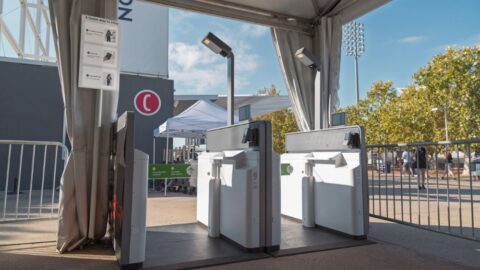J.Crew is the latest brand to sell products on Amazon, bringing a curated fall 2018 assortment from J.Crew Mercantile through a dedicated storefront at amazon.com/jcrew. The retailer joins major brands including Nike, Victoria’s Secret and The Children’s Place.
Amazon says all items will cost “under $300.” The new shop will include “reimagined classics, everyday necessities and statement pieces at friendly prices,” plus denim and outerwear, and free two-day shipping for Prime members.
While Amazon is not traditionally known for fashion brands, it’s clear Amazon Fashion is gaining plenty of traction among consumers, making it an enticing option for brands that wouldn’t generally sell on a marketplace. The e-Commerce giant gained 1.5% of the U.S. apparel market in 2017, making it the second-largest apparel seller, behind only Walmart, according to analysis from Morgan Stanley.
A retailer like J.Crew always has to worry about the impact on its brand equity, particularly in alienating shoppers who enjoy the exclusivity of certain products. Additionally, while expanding distribution certainly gives retailers a greater consumer reach, it also keeps shoppers on the Amazon site.
But J.Crew has tried to change things up to make the brand more accessible, emphasizing low prices and launching its first rewards program in August 2018. Additionally, J.Crew will sell apparel via other outlets; CEO James Brett has indicated that the brand will sell merchandise at department stores including Hudson’s Bay and UK-based John Lewis.
The company shared some its best news in recent memory when it unveiled its latest earnings report — J.Crew saw a comparable store sales increases of 1% in Q2 2018, a positive sign for a retailer that reported 13 straight quarters of comparable sales declines, including a 6% drop in Q1 2018.
Former J.Crew CEO Mickey Drexler said last year he wouldn’t sell on Amazon. “No. 1, they own the customer,” he said at a conference, adding that Amazon would “take every best-seller and put it into their private label collection.” Drexler admitted last year that he underestimated the role technology would play in retail, noting in a Wall Street Journal interview that the retailer’s biggest mistake in recent years was increasing prices at a time when customers were becoming more price-conscious. Less than two weeks later, Drexler stepped down as CEO.












